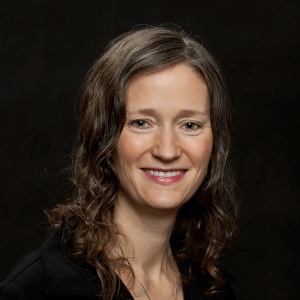As I See It: What inevitable corruption of institutions means for Harvard
| Published: 05-19-2023 2:26 PM |
As legend has it, St. Francis, then an unknown monk from Assisi, visited the Pope in Rome to ask for spiritual guidance. But, as the story goes, it was the Pope who found spiritual guidance from this ragged beggar who made the Pope realize how compromised he had become under the pressure of the institutionalized church. “I was once as pure as you are,” said the Pope as he kissed the dirty foot of the young pilgrim.
Over time and repetition, all idealist origins of the human heart suffer the loss of their original idealism under the relentless process of institutionalization. This corruption of institutions, so natural to human evolution, has been true of all revolutionary movements. Among the most famously known: Jefferson was shocked to see the return of the “British style” courts and mannerisms to the Washington administration, which, to Jefferson, was slowly forgetting the spirit of 1776 for which so much had been sacrificed by the newly independent colonial Americans.
Hitler was perturbed that his now-successful Nazi comrades were becoming fat and lazy, losing their original national-socialist radicalism. He appointed the unpopular Joachim von Ribbentrop to be his foreign minister mainly because “He is a radical!”
Mao was likewise upset that his fellow communist Chinese were getting soft after their hard-fought victory over the nationalists and, as a way to revive the revolutionary energy and ideology, started that infamously disruptive “Cultural Revolution” with the Red Guards.
None of these and other revolutionaries, including Jesus, succeeded in keeping their original energy and ideology or stem the tide of their corrupting decline. All of the great movements, to the chagrin of the purists, have faded into the weight of institutional evolution and become corrupt, hardly recognizable to their founders.
Recently, we had a chance to see the famed campus of Harvard University. While touring Harvard Square, we ate at a ramen specialty restaurant frequented by Harvard students. The eatery was crowded with students full of confidence, gusto and optimism befitting the famous university on whose name they were betting their futures. A graduate of a modest public school (UCLA), I was properly impressed with the exuberance of this great university.
On the way home to Greenfield, my wife and I stopped at the Walden Pond State Conservation (our second visit) where Henry David Through wrote his book “Walden.” As I stood at the original site of Thoreau’s hut, I suddenly wondered what Thoreau, Harvard’s most famous graduate, would think of today’s Harvard University.
Why is Harvard so famous and why does everybody want to attend it or teach there? Now at the pinnacle of its prestige, influence and power, the name Harvard always conjures up the reality of “money” (both costs and rewards), not “teaching” or “learning,” or, God forbid, “Veritas (truth),” which is Harvard’s logo. If money were not the issue, our local Greenfield Community College (GCC) would be just as welcome as a great place for higher learning. In an ideal world ruled by the likes of Socrates, Jesus or Thoreau, would Harvard still rank as the “best” or “most desirable?”
Article continues after...
Yesterday's Most Read Articles
 Police report details grisly crime scene in Greenfield
Police report details grisly crime scene in Greenfield
 On The Ridge with Joe Judd: What time should you turkey hunt?
On The Ridge with Joe Judd: What time should you turkey hunt?
 New buyer of Bernardston’s Windmill Motel looks to resell it, attorney says
New buyer of Bernardston’s Windmill Motel looks to resell it, attorney says
 Greenfield man arrested in New York on murder charge
Greenfield man arrested in New York on murder charge
 Man allegedly steals $100K worth of items from Northampton, South Deerfield businesses
Man allegedly steals $100K worth of items from Northampton, South Deerfield businesses
 Joannah Whitney of Greenfield wins 33rd annual Poet’s Seat Poetry Contest
Joannah Whitney of Greenfield wins 33rd annual Poet’s Seat Poetry Contest
Evil is not that Harvard is money, but that Harvard is money while claiming that Harvard is truth (“Veritas”). There, money and truth comfortably and peacefully co-exist in the heart of Harvard University without a shred of inner or outer contradiction. There, God of Money and God of Truth both claim Harvard as their favorite son. There, truth has been smoothly transformed into money and we celebrate Harvard as the best and most desirable place for learning and teaching.
Indeed, with money looming on every nook and cranny of Harvard, what truth could you expect from the mouth of a “Harvard professor” or from the heart of a “Harvard student” when their first, and last, concern is money? Thoreau would rather meet a humble GCC professor or a GCC student, away from money or fame, to converse about truth. To paraphrase Thoreau’s view of Ralph Waldo Emerson, how could a person or an institution be so famous and popular without being corrupt?
Harvard University, in spite of its sprawling academic behemoth today, began, like all other colleges in the world, in its simplest form: Teachers and their students gathered to teach and learn. Then by the very natural process of evolution, Harvard has become the most corrupt institution of higher learning, commensurate to its gargantuan fame and popularity. It is so removed from its goal of pursuing the truth that the simple task of teaching and learning has almost become an afterthought.
Oddly, now, “Harvard” (the great institution) even towers over “University” (the great mission). According to Socrates, Jesus or Thoreau, the greatest teachers of humanity, money corrupts and love of money corrupts absolutely. They would say, “Behold Harvard!” To us Harvard means greatness; to them it means corruption.
As we evolve along the steps of civilization, this corrupting process is true in every institution: medicine, education, law, military, religion, politics, and so on, which begin nobly but evolve into ignobility.
The only antidote to this inevitable corruption of our own evolution is to disrupt everything in our routine lives — all the time — so there is not one thing taken for granted even for a moment. All established institutions — the Pentagon, the Vatican, or Harvard — struggle unceasingly against their own internal corruption.
To remain pure against this onslaught of encroaching institutional civilization, Thoreau went into the woods and built a hut to “live deliberately.” The spirit of Walden Pond, in its humble anonymity and solitude, was still a desperate contrast against the specter of corruption at Harvard, oozing its omnipotent stench only a few miles away.
Somewhat cleansed by Thoreau’s Walden, we made our silent way home to Greenfield — far enough away from evil.
Jon Huer, columnist for the Recorder and professor emeritus, lives in Greenfield.
]]>

 My Turn: A moral justification for civil disobedience to abortion bans
My Turn: A moral justification for civil disobedience to abortion bans My Turn: Industrial solar installations are overwhelming Northfield neighborhood
My Turn: Industrial solar installations are overwhelming Northfield neighborhood Guest columnist Rudy Perkins: Dangerous resolution on Iran
Guest columnist Rudy Perkins: Dangerous resolution on Iran Guest columnists Ellen Attaliades and Lynn Ireland: Housing crisis is fueling the human services crisis
Guest columnists Ellen Attaliades and Lynn Ireland: Housing crisis is fueling the human services crisis
